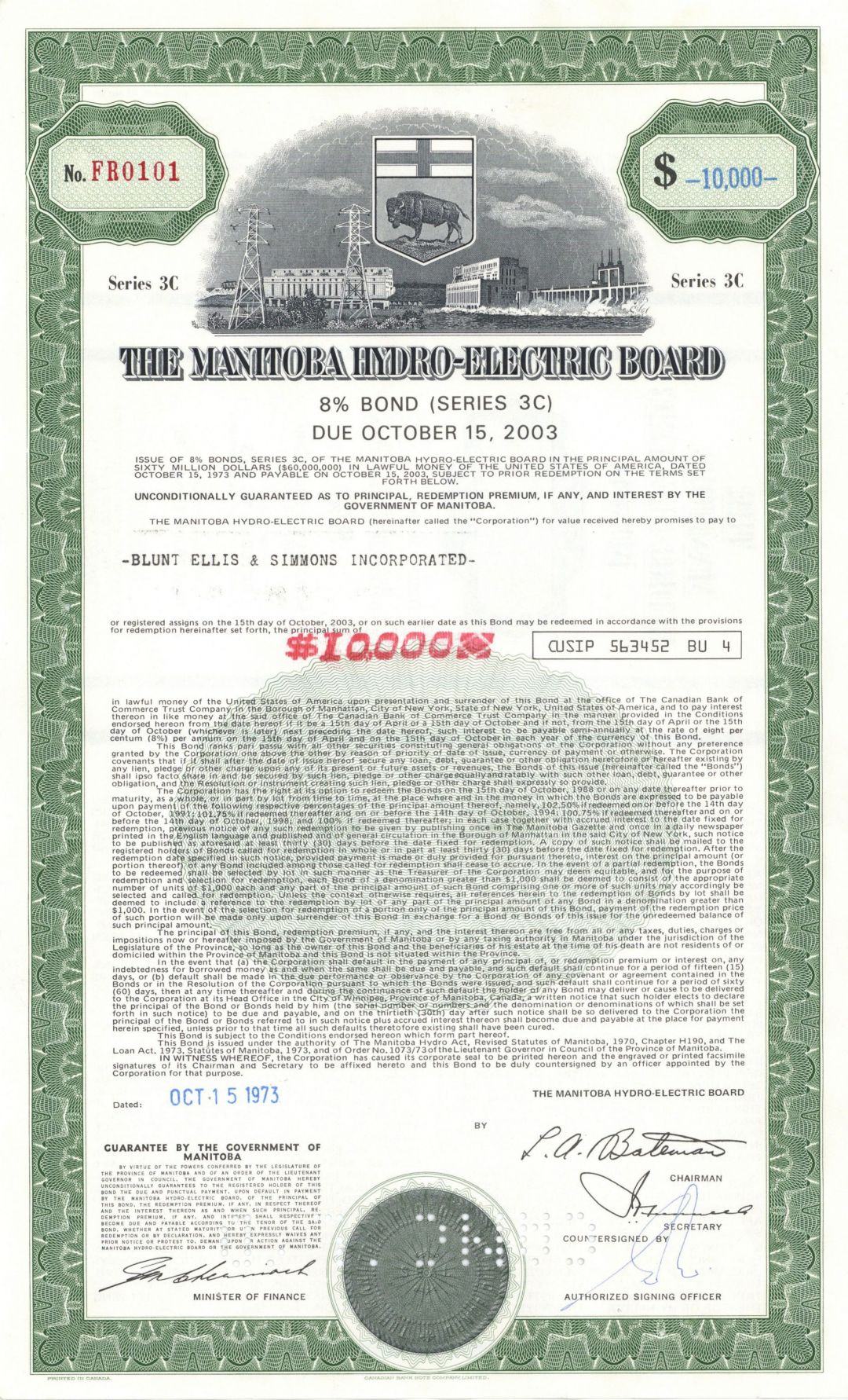Manitoba Hydro-Electric Board - 1980 dated $1,000 Canadian Utility Bond
Inv# UB1000 Bond$1,000 9 3/8% Bond. Printed by Canadian Bank Note Company, Limited. Manitoba Hydro is the electric power and natural gas utility in the province of Manitoba, Canada. Founded in 1961, it is a provincial Crown Corporation, governed by the Manitoba Hydro-Electric Board and the Manitoba Hydro Act. Today the company operates 15 interconnected generating stations. It has more than 527,000 electric power customers and more than 263,000 natural gas customers. Since most of the electrical energy is provided by hydroelectric power, the utility has low electricity rates. Stations in Northern Manitoba are connected by a HVDC system, the Nelson River Bipole, to customers in the south. The internal staff are members of the Canadian Union of Public Employees Local 998 while the outside workers are members of the International Brotherhood of Electrical Workers Local 2034.
Manitoba Hydro headquarters in the downtown Winnipeg Manitoba Hydro Place officially opened in 2009. The first recorded attempt to extract useful work from a Manitoba river was in 1829 at a flour mill (known as Grant's Mill) located on Sturgeon Creek in what is now Winnipeg. This was not successful and the milling equipment was later operated by a windmill. The first public electric lighting installation in Manitoba was demonstrated at the Davis House hotel on Main Street, Winnipeg, March 12, 1873. In 1880, the Manitoba Electric and Gas Light Company was incorporated to provide public lighting and power, and a year later absorbed the Winnipeg Gas Company. In 1893, the Winnipeg Electric Street Railway Company was formed, and initially purchased power from Manitoba Electric and Gas, but by 1898, it had built its own 1000-horsepower (750 kW) generating plant and purchased Manitoba Electric and Gas. Read more at https://en.wikipedia.org/wiki/Manitoba_Hydro
A bond is a document of title for a loan. Bonds are issued, not only by businesses, but also by national, state or city governments, or other public bodies, or sometimes by individuals. Bonds are a loan to the company or other body. They are normally repayable within a stated period of time. Bonds earn interest at a fixed rate, which must usually be paid by the undertaking regardless of its financial results. A bondholder is a creditor of the undertaking.












Ebay ID: labarre_galleries